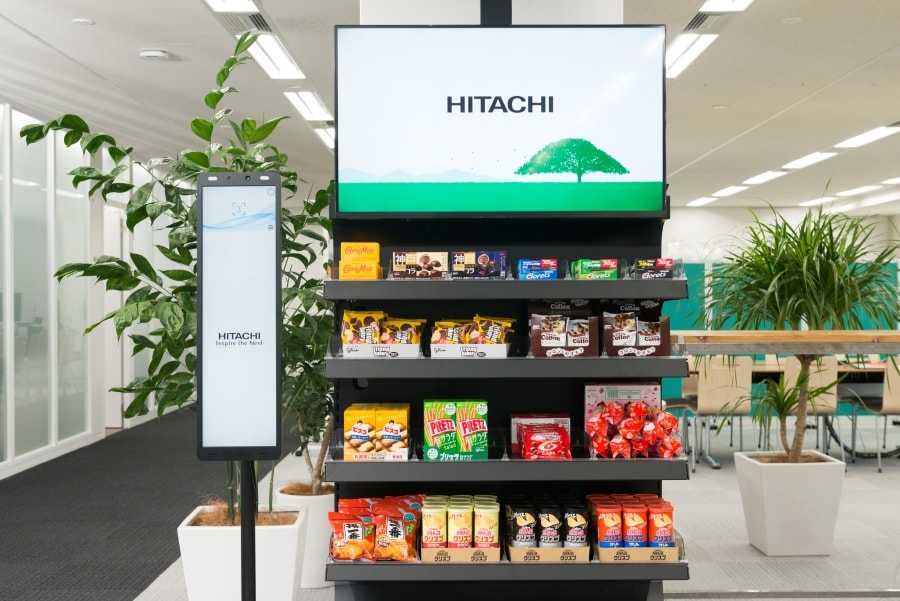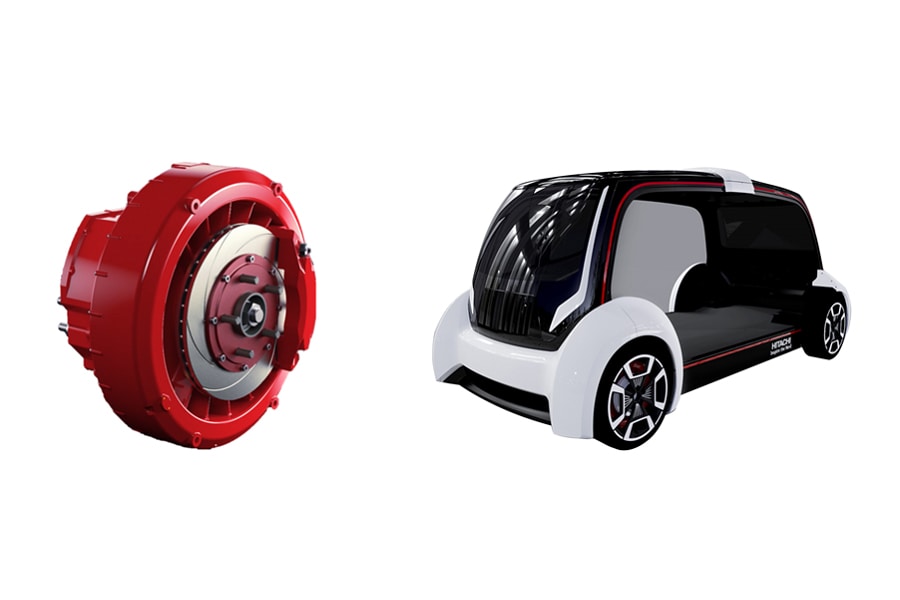Hitachi Holds Contest for Startups: Toward Realizing a Net-zero Society through Co-Creation
May. 11, 2022
Ayano Onodera
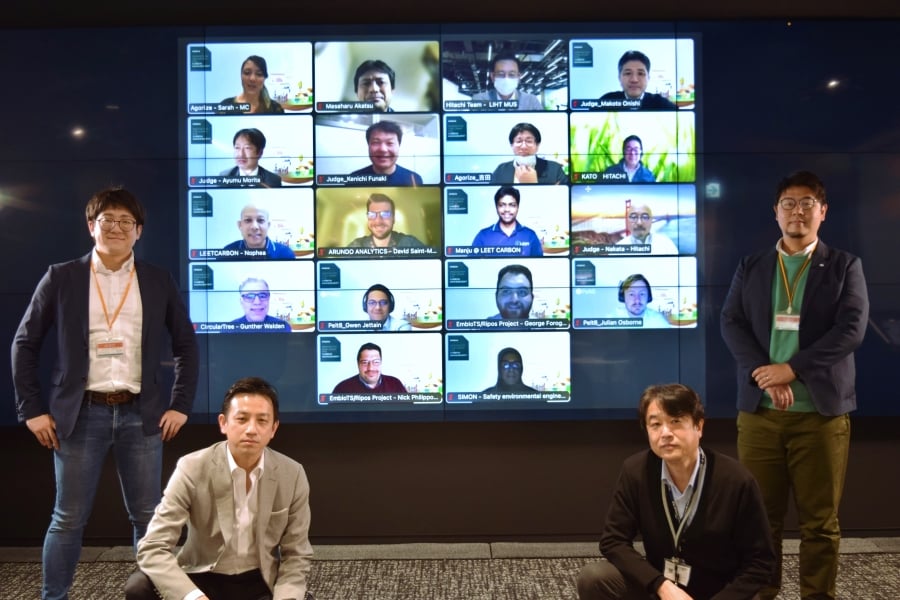
With a theme of "carbon management," which is the ascertaining and managing of CO2 emitted during business activities, Hitachi, Ltd. held a contest for startup companies seeking collaborative partners and conducted the final round online on March 23, 2022.
This contest called for business ideas in two categories: 1) environmental data collection / carbon measurement and 2) new services using environmental data. A total of 83 applications were received from startups globally. Of these, eight companies passed the first and second rounds to advance to the final round, where three companies were ultimately selected as the winners.
Hitachi plans to continue discussions with the winning startups with a view toward commercializing their ideas and hopes to give momentum to the development of solutions to realize a net-zero society.
Increasing open innovation
Carbon management is gaining attention, as companies have become increasingly required to take immediate action to address climate change issues. The term not only refers to ascertaining the amount of CO2 emitted by business activities but also to managing activities that contribute to reducing CO2 emissions. There is a growing movement to introduce this philosophy and contribute to achieve net-zero emissions worldwide.
Against this backdrop, Hitachi held “Innovation Challenge for Carbon Management | Startup Challenge,” a contest for startup companies with the theme of carbon management. In December 2021, Hitachi sent out a call for business ideas and by February 6 this year had received 83 applications from startups globally.
In recent years, such trends have been increasing among companies and local governments, and open innovation—the mutual utilization of knowledge and technology possessed by organizations other than the company itself toward launching new businesses—has been spreading.
Hideaki Wakabayashi, who was in charge of running the contest, explains the reason for Hitachi's open innovation: "To solve social issues, we feel that it is essential to use not only the technologies that Hitachi possesses but also to collaborate with partners of ours that possess a variety technologies and knowledge."
Using graphs and demonstrations to showcase business ideas
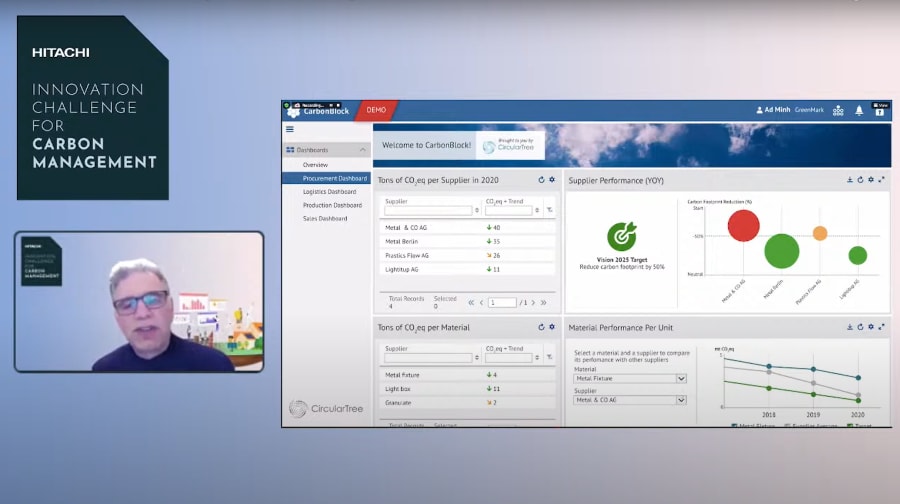
In the final round, the eight companies that passed the second round gave five-minute presentations using graphs and demonstrating their own software to showcase their business ideas. During the Q&A session that followed, the judges asked various questions about their business models and points of differentiation from their competitors.
After all the presentations were finished, the judges deliberated and announced the three winning companies. The winners were Arundo Analytics, which proposed a platform to automatically collect and manage data on CO2 emissions across the supply chain; CircularTree, which also proposed a service to collect and manage emissions data using a blockchain; and Leet Carbon, which proposed a project to collect and manage data on agriculture, protected forests, and marine plants that absorb CO2 along with using that data for emissions trading.
CircularTree CEO Gunther Walden expressed his enthusiasm for the future by saying: "We are pleased to continue our discussions with Hitachi. A carbon footprint (the total amount of CO2 emitted in the lifecycle of a product from production to disposal) is an enormous current issue. We look forward to tackling this issue toward making the world a better place."
Points that the three winning companies were assessed on
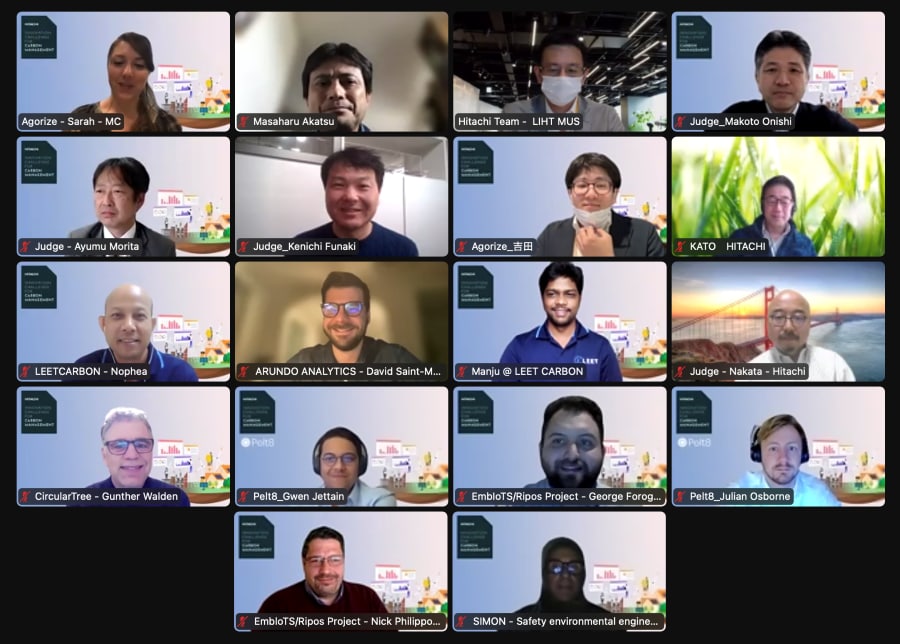
Summarizing the final round, General Manager Ayumu Morita of Hitachi, Ltd., who served as head judge, said: "Of the eight companies' presentations, the proposals from those that are undertaking concrete initiatives had an impact. The reason for this is that they feel and understand the issues because of actual experience."
He then talked about the three winning companies and the points that they were assessed on.
"I felt that Arundo Analytics could be useful to Hitachi's business immediately. CircularTree is already collaborating with automakers, and CircularTree’s story about the difficulties and challenges of working with large supply chains was very convincing. Leet Carbon was very interesting in comparison to the other seven companies, and they were rated highly for their future potential."
Hitachi plans to continue discussions with the three winning startups with a view toward commercializing their ideas.

